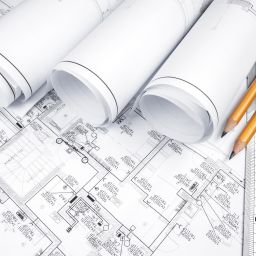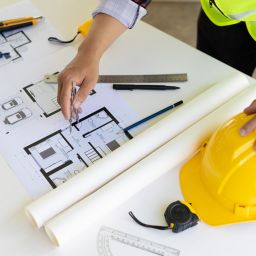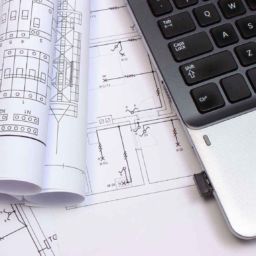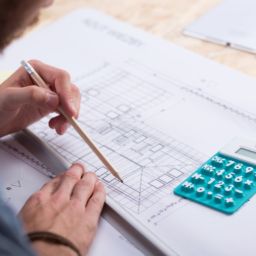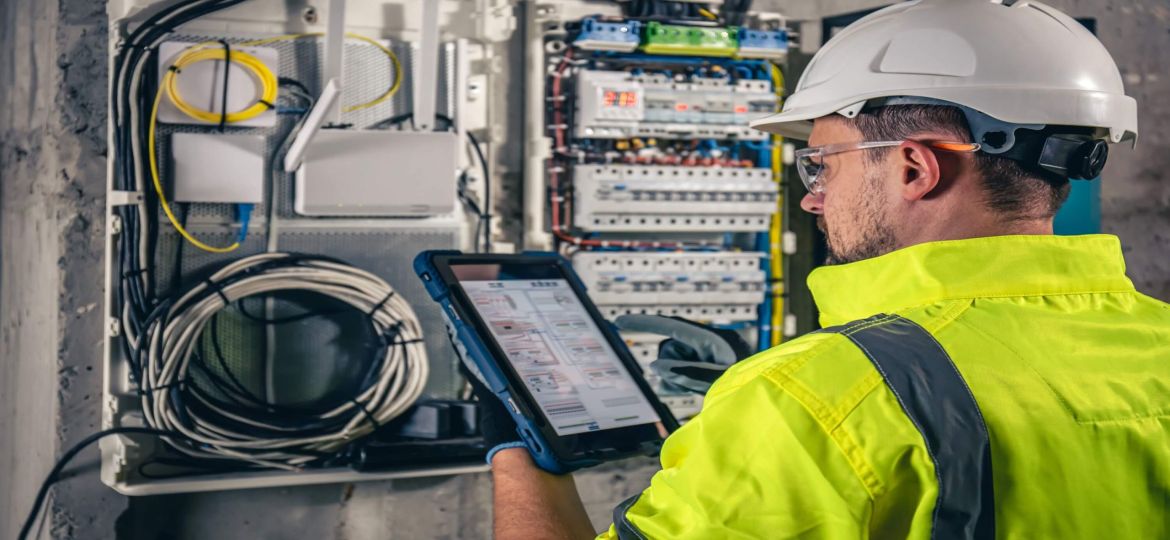
A construction project does not come to fruition without electrical estimating. There are many factors businesses have to consider to determine the costs of a project before starting.
Construction companies and contractors alike refer to electrical estimation to determine a fair price in a systematic way.
This article will discuss what electrical estimating is, the different methods of estimation and why it is necessary to perform one before construction.
What Is Electrical Estimating?
Electrical estimating is a process that aims to determine the cost of electricity required for construction projects.
The method of computing the required cost of various materials and labour involved is called estimation.
It is usually performed by an electrician, electrical contractor, electrical engineer, or through software.
Producing an estimate is no easy feat, especially as the estimates are dependant on many variables such as budget, various materials, cost of tools, and labour costs.
While it may sound tedious, a complete and accurate estimate will positively affect the quality of the projects and, consequently, improve the business’ profit.
The Different Electrical Estimating Methods
You will find here the different ways to arrive at an electrical estimation.
Each method has its own pros and cons, so make sure to consider other factors before starting to estimate.
1) Per-Point Method
This method counts each fixture as a point assigned with a common monetary value.
For instance, a light switch is assigned the value of £100, and the project estimates 100 points. This means that the whole project would be quoted at £10,000.
This way of estimating is typically easy, but manual calculations such as this are also prone to be inaccurate. It does not consider the differences in labour.
However, if your contractor has worked with similar past projects, this estimating method may work for you as it is a simple way to estimate the costs.
2) Labour-unit Method
A labour unit is defined as the average cost of labour per unit of output produced.
In this method, a value is assigned to the human labour required to install the fixture or hardware.
For example, let’s give one labour unit a value of £50. The labour involved in the electrical installation of a power socket is one unit, while installing a sensor might be three.
There are two methods to gain estimates using labour: shop average labour rate and job average labour rate.
The first method divides the total field labour rate over the last 12 months by the total number of labour hours rendered.
On the other hand, the latter estimates the costs based on the job complexity.
3) Assembly Estimating Method
Electrical estimators often use this method to include both the labour unit cost and materials costs.
Instead of taking one hardware or fixture at face value, the required materials are seen as having multiple components.
Power sockets include the power point, mounting bracket, and cabling. Instead of different costs, these various materials are packaged into one unit.
4) Design and Construct Method
As a complex method, the estimators are often electrical contractors who are involved with both the design and the actual execution.
Aside from assigning costs to materials required, these electrical estimators are also tasked to complete details of the project, including design methodology and equipment expertise.
This estimating method has more control over the project, resulting in the estimate of the costs being more accurate.
5) Guesstimate
We would not recommend this method for complex projects or those working in an industry that requires quality and accurate estimating of cost.
Often, contractors of smaller firms use their projects in the past as a future reference for electrical estimating.
However, if you want to complete work satisfactorily, the process is much more nuanced than guesstimates.
6) Electrical Estimating Software

This new technology is anchored on the concepts of electrical engineering, and details of the project can be considered to determine the price and other costs.
Aside from eliminating the need for supervision inspection, using software will ensure accurate computation of big data and the money needed to fund the project.
The Purpose and Why Electrical Contractors Need Electrical Estimation
One of the biggest reasons for electrical estimating is to exercise control over the process and the quality of the materials required depending on the job.
Another reason for using an electrical estimator is to accurately determine the cost of labour and materials involved and use this data as an example for future projects.
Lastly, an electrical estimator is used as a reference point while the project is undergoing construction.
Commonly overlooked factors, such as transportation stock incidental contingencies, are included in the data.
This is a good example of how estimation can result in a more precise and accurate computation of all the costs involved in the project.
What to Consider Before Doing an Electrical Estimation
When preparing estimations, it is important to take the following factors into account:
- Full specification of materials
- Sufficient labour
- Skill and suitability of labourers
While it is crucial that the project stays within the budget, the quality of materials used is of the utmost importance.
To complete the work, the labourers must have the appropriate competencies. Their wages must also be considered to determine the most economical procedure for the execution.
Frequently Asked Questions
Why Is Estimating Electrical Materials Important?
Estimating the cost of electrical materials is crucial for every project because it ensures that the quality of the materials is the best, all the while staying within the proposed budget.
As an important part of the construction process, estimating can win bids for firms.
This process helps contractors exercise control in all phases of construction, including designing, picking the materials and labourers, and up until the project is constructed.
It is also for the safety of the people who will occupy the residential or commercial space.
Can an Electrician Become an Estimator?
Yes, an electrician can become an estimator.
Usually, they would need to be licenced to start estimating electricity costs, but electricians are the experts in this field due to their experience alone.
Sometimes, they can even provide an accurate estimate by walking around the project space and factoring in the needs and preferences of a customer.
While this may not be true for beginners, veteran electricians will refer to projects they worked on in the past
How Is Electrical Work Calculated?
Electrical work can be calculated through manual computation or through the use of software.
Manual work is done by guesstimating or providing a rough figure on top of the head of the estimator. We do not recommend this for projects that have specific needs.
Another way of calculating the electrical work is through the other methods we mentioned above.
The use of the software is most helpful for large projects or for processes that require specialisation or expertise in certain skills.
The calculation of a project can also depend on the priorities of the clientele. Here are some guide questions that can help you:
- Does the client prioritise sticking within the budget, or are they amenable to slight changes if it means improving the overall quality?
- Does this project require specific skills of experienced labourers, or can new labourers be hired to perform basic construction?
- Is the client meticulous about the quality and source of the materials, or are they giving the firm discretion?
Final Words
We hope this article helped you understand what electrical estimating is and why it is important for a project.
Make sure to select the best method for your current situation while achieving the utmost accuracy.
Need help with electrical estimating for your next job? Just reach out to us at Chase Estimating via email, phone or chat and we would be happy to sort not just your electrical but your mechanical and insulation estimating requirements as well.




